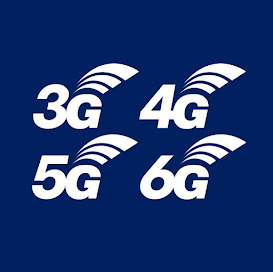 AT&T Inc. has announced that it will launch femtocells nationwide by the end of the year, expanding the trial launch it’s been running since January.
AT&T Inc. has announced that it will launch femtocells nationwide by the end of the year, expanding the trial launch it’s been running since January."We will expand that into a marketing trial of the AT&T-branded 3G Microcell, which will be open to customers through our AT&T stores ... in a handful of cities,” said Gordon Mansfield, AT&T's executive director for radio access network delivery, speaking at the Femtocells World Summit in London. "We're on track for a full national launch by the end of 2009."
He also said the carrier was exploring ways to expand the femto opportunity beyond simply selling standalone home base stations that offload cellular backhaul from the macro network and boost bandwidth for cellular users. For instance, integrating a femto into other devices in the home.
Meanwhile, Vodafone UK 's surprise femtocell service launch announcement yesterday won't force T-Mobile International AG 's hand to launch a rival service in the U.K. or in any of its markets.
The German giant is sticking to its femto guns and does not feel compelled to take on the largest mobile operator by revenue with a commercial home base station service of its own, simply because Vodafone was first to market in Europe.
"We won't be pushed by that announcement," said Klaus-Jürgen Krath, T-Mobile's senior VP of radio networks engineering, speaking on the sidelines of the Femtocells World Summit in London today. "Let's see how they do in the market...
"There is not any firm launch plan that I can disclose now," he added.
T-Mobile has been busily testing and investing in femto technology for the last few years, but the operator maintains that there are still technical and marketing issues that need to be resolved before a consumer mass market solution is possible.
T-Mobile is a strategic investor in access point vendor Ubiquisys Ltd. and femto chip startup Percello Ltd.
According to French mobile operator SFR , France is a tough market for femtocells.
And one of the issues that makes the country extra special in Europe is the growing public concern about the health risks from cellular antennas and handsets, according to Guillaume de Lavallade, director of network marketing at SFR, who was speaking at the Femtocells World Summit in London.
WiFi hotspots have been disconnected in public libraries; there have been court actions to prevent the installation of cellular masts or have them removed when they're close to schools or homes; and the national government is investigating the health risk associated with masts and handsets, explains Lavallade.
"Introducing femtos in France in this environment is raising these questions," he says.
You can explain that the emitted power of femtos is 10 times less than that of WiFi, comparable to a DECT phone, and that 3G handsets emit less power when connecting to the femto than on the macro network, or that a network based on a femto architecture generates less power than a macro architecture, he says.
"It's difficult for an operator to take those facts and figures to the consumer," he says.
SFR has been trialing a femto from Ubiquisys Ltd. , which was spotted on a French Website recently.


No comments:
Post a Comment